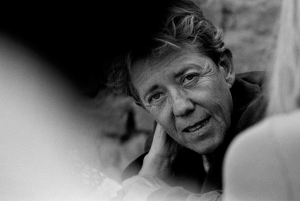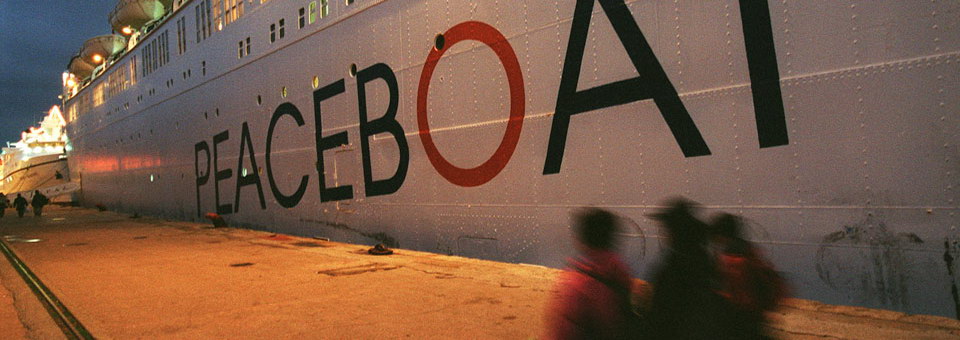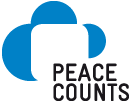Mali: Return of Desert Knights
 by Uschi Entenmann
by Uschi Entenmann
Photos: Uli Reinhardt
By cultivating rice plants the German couple Henner and Barbara Papendieck created hope for the people in the Northern part of Mali, a region largely destroyed by civil war.
The desert city is alive. The streets of Diré in northern Mali are filled with cries, odors, and the sounds of haggling. Black women in robes as colorful as jockeys’ silks sit before mountains of spices piled on mats. Behind them, pirogues rock on the slow-flowing Niger. Women do their laundry in the muddy water. Downstream, fishermen spread their nets. The center of the channel is occupied by two hippopotamuses.
Yehia Ag Mohammed Ali is holding court. Many come into the city just to see him, but that can wait. They wait for evening, when the market turns calm, when the women tie their children into cloth bundles on their backs and herbs, salt, and spices into bast bundles on their heads before climbing into pirogues that will take them downstream to their home villages. Only then does Yehia Ag Mohammed Ali enter the courtyard. He is immediately surrounded by men who overwhelm him with requests. They need water pumps. One needs books for a school. Two more are in conflict over the distribution of arable land. At first Yehia answers no one. He unwraps his turban with an air of relaxation and asks for a pitcher of water to wash his feet. He turns towards Mecca. The men follow his example. Then, womewhat quieter, they build a new circle around him.
With Yehia’s arrival, peace came to the region like warm rain to the desert. Mali is naked. Where Yehia passes, like a miracle, the desolate gray land stands in bloom. Green fields of wheat and millet sway where once was only sand and thorn bushes. Children play in front of adobe huts as if there had never been a war. Black and Tuareg children – the blacks call them “redskins” – strictly separated during the rebellion, now roam through the dust together, a colorful horde, teasing goats and splashing in the river. They don’t know that they have two Germans to thank for such privileges, as well as Yehia Ag Mohammed Ali, the son of a tribal wise man. As proud as his father, occasionally hot-tempered like many Tuareg, graceful and patient – and with a heart big enough to marry a black woman, despite more than 300 years of tribal feuding.
The cooperation between Yehia Ag Mohammed Ali and the two Germans is the kind of success story this continent urgently needs. It is also a valuable case study in the relative nature of the value of money – as relative as the value of water in the desert. Poured away, it is gone in an instant. Yehia Ag Mohammed Ali has not wasted a drop. The men who gather around his house in Diré know that he has money to give away, German money, and by Malian standards, a fortune. They also know that the money is only available where they can maintain peace.
September 1994: Peace in northern Mali seems a dream as distant and unreal as the rich and splendid continent of Europe, the jumping-off point for Barbara and Henner Papendieck. Back then they were 51 and 49 years old, respectively. There had already been five years of war between the government and rebels. Two droughts in the 70s and 80s had left the pastures bare. The Tuareg’s cattle died of thirst. The situation attracted concern from abroad, but international solidarity never reached the north. Instead, civil servants built imposing mansions in the capital, Bamako. “Billions disappeared, just like that,” says Henner Papendieck.
The Tuareg, enraged by the lack of assistance, rebel. They are led by young mercenaries trained to kill in Libya and with experience on distant battlefields like Afghanistan and Bosnia. Otherwise unemployable, the mercenaries own nothing and have nothing to lose. They plunder armories, use the weapons to take police stations, skirmish with both army and police, and attack anything that symbolizes state power. Thousands of fighters die on both sides. Hundreds of thousands of civilians flee. At the insistence of France, the former colonial power, and Mali’s neighbor Algeria which fears the conflict could cross the border, there is a peace settlement. It stipulates that the rebels will be recruited into the army and that the Tuareg will administer the north autonomously.
But the army rejects many of the ex-rebels, and they return to destabilize the country. The Songhai people, black farmers, form a paramilitary militia and take on the Tuareg. That explosion of violence greeted Henner and Barbara Papendieck on their arrival. “We came to help out with the peace. Instead, the war started up again.” The economist and the sociologist have their own approach to stopping the carousel of war. Both are well acquainted with African traditions. They lived for six years in Ghana, then traveled Africa’s crisis zones for the German Society for Technical Cooperation (GTZ). They counter the war coffers of the militants with their own peace fund. The GTZ and the Credit Insitute for Reconstruction (KfW) have entrusted them with 18 million Euros.
With that money, the first thing they organize is a huge party. The peace conference in the city of M’Bouna is intended to bring the combatants together and reconcile feuding tribes. They invite the leader of the Songhai, convincing him that he can expect no help from the army in the south. They invite the Tuareg, who are slowly coming to see that their rebellion has brought death and displacement to their own people as well as their enemies. The Bellah have fled, along with the Fulbe, who once shared pastures with the Tuareg.
“We even managed to get women permission to attend the conference,” says Barbara Papendieck. The people come on trucks, on foot, on donkeys. With the sky as a roof, the Songhai, Arabs, Tuareg, Bellah, and Fulbe debate, bargain, and argue. The speeches are translated into five languages. Conflicts raging for centuries are rehashed on issues ranging from water to schools and work. A few yards on, women cook and bake around the clock at enormous campfires. It’s not the miracle of the loaves and fishes – the masses consume three and a half tons of rice, 180 sheep, four oxen, and mountains of flat bread. The peace party costs 14 million Malian francs, around 20,000 Euros. Only three days later, the nomads from the far north begin to reappear at the markets.
“The conference got people talking to each other,” says Barbara Papendieck. “Then we could start with the actual work.”
First they founded an advisory board of village elders, the “council,” in which influential men from every ethnic group were represented. “The young men had grown up with the war. They only knew one way to solve conflict – with violence. They were of no use to us.” But the old men knew other ways. “We told them, ‘We’re Germans, we’re strangers here. But we have money. And we’ll only spend it where there’s peace. It’s your job to advise us.’”
The concept is simple, but to carry it out the Papendiecks must leave their comfortable home in Bamako and move to the ravaged north. “We had to go where it hurts.” With the protection of military patrols, they drive through a no-man’s-land of destroyed villages, ending up in the little town of Léré, which has lost two thirds of its inhabitants. Many huts are in ruins. The walls, plastered together from mud, straw, and manure, have been dissolved by the seasonal rains.
Henner Papendieck spends the first night in the house of the chief of police. He doesn’t last long. “It was humid, with clouds of mosquitoes. The mattress was full of fleas.” Irritated and bitten, he flees into the open and starts to think. He remembers the Germany of his childhood – the time just after the war, with its hunger, rivers of refugees, the fear of revenge by the victors, but also the reconstruction and the “economic miracle.” That’s what we have to do, he thought, what they did then: “Use what’s there, but don’t take control away from the people. It’s their job to rebuild their country, not ours.”
The Papendiecks need a leader who can mediate between tribes, who can give the people hope and courage – someone like Yehia Ag Mohammed Ali, son of a respected Tuareg clan. His father was a Marabut, a literate patriarch, politician, and judge said to possess magic powers as a faith healer. Before he died he gave his scepter to Yehia, although he didn’t seem the mostly likely candidate for a successor. As a young man he had broken out of the hierarchical society, studying economics in Bamaka and working as a banker in Togo and Niger as well as Mali. And he married a woman from the black farming tribe of the Bambara. That might be a flaw in the eyes of the Tuareg, but for his position as mediator between his nomadic people and his wife’s sedentary relatives, it’s an invaluable advantage.
“We’re very lucky to have found Yehia,” says Henner Papendieck as his SUV slaloms rumbling around six-foot termite mounds and eucalyptus trees. There are no roads in the north. Only those familiar with the terrain can find their way from one village to another. The car climbs over rocks and thickets, past old men on donkeys, children tending sheep, and women carrying mats of women palm fronds to market.
When Yehia Ag Mohammed Ali negotiates, the Papendiecks are no more than spectators, as on this Sunday, ten years after the end of the civil war. Yehia’s guests crouch for hours in the tent and palaver – men in flowing robes, their faces hidden under turbans except for a narrow slit around the eyes. The cotton shawl, wrapped tightly around the head, protects them from the drifting sand that blows through the tent. It also hides any expression their faces might show. Women slip into the tent and set bowls with millet and lamb in the middle of the floor. Yehia Ag Mohammed Ali, the only one present whose faced is not veiled, mixes the grain and meat with his bare hands and invites his guests to eat. The men dig in. He watches them calmly, his shaved head inclined towards a guest who murmurs a few words in his ear. A brief nod, a wave of the hand that gives another guest the floor, and the discussion moves casually from one to the next. No one raises his voice, but every gesture and nuance is given close attention. The topic is water. A dam will be built, a motorized pump installed, a stretch of desert flooded. Who will farm it? Four-fifths of the population are subsistence farmers. Two-thirds of the country is desert. Only those who have access to water can survive. Sometimes a trickle is enough. Only a few years ago, the Tuareg and Songhai were fighting to the death for water. Now Yehia mediates. He listens earnestly to each man’s case, steering the conversation with a few well-placed words until the men relax and laugh. Later he says modestly, “I think we have a solution.” He discusses the grant applications with his German partners. Henner Papendieck knows his work would be hopeless without the mediator and his knowledge of the clans’ mutual entanglements. “I know nothing about the web of relationships between the clans. They’re ancient history. No European can figure them out.”
Of course there are also setbacks. In Youwarou the black village chiefs protested against the order to cooperate with the Tuareg. “We don’t want redskins here.” The Papendiecks didn’t hesitate – they packed up the moneybags and left. In another attempt to negotiate directly, Henner Papendieck brought himself into danger. “Suddenly there were merchants at my door. The wanted money for the trip back north, and I said straight out that they should just leave me alone.” The Songhai men unleashed a small insurrection in front of his house. Passersby joined in solidarity, cursing “discrimination and injustice.” Papendieck called a member of the council, who rescued the hapless German.
Nature, too, poses a constant threat to the peacemakers’ work. Its first target is the Bellah tribe, former serfs of the Tuareg. Henner Papendieck manages to persuade 40,000 refugees to return after the peace conference in M’Bouna. They settle on the banks of Lake Faubuigine. Cholera breaks out. “The children were dying like flies. We scared up medicine and food as fast as we could. That was the only way to save them.”
A year later, the Niger overflows its banks. After many dry years, the lake is again full of water. The rats are driven from their holes. “Huge beasts that ate everything in sight – the harvest, stores of food, even peoples’ clothes.” A further Biblical plague settled on the exhausted land in 2004. For two months, tens of billions of grasshoppers migrated the length of the river. “The biggest swarm was 15 miles long. As soon as we left the boat and went on shore, they started up our legs. I still have nightmares.”
Again Henner Papendieck looked for advice, this time from experienced farmers. The government recommends spraying poison from the air. But with the constant wind, it would poison the people and the river as well. In the end he suggests digging a bulwark of ditches around the fields. In the first, the insects are crushed. In the second, they face burning gasoline. Only grasshoppers who make it to the third ditch face poisoning. The rice harvest is saved. But he knows that the females have laid their eggs in the sand, and their offspring will emerge after the first rain in July.
Sometimes success itself can pose problems. In Koumaira and Diré, Barbara Papendieck helped village women irrigate four fields along the Niger. Two of them can only be reached by boat. “Even the first harvest two years ago was fantastic,” Barbara says with enthusiasm. “A little less than three tons of rice per acre, and each woman has almost half an acre. They were harvesting together, laughing and joking, and when I asked them what they planned to do with the money, they said, ‘Now we can finally afford to get our daughters circumcised.’” Barbara Papendieck was outraged. Again, it is indigenous partners who are able to help: women from villages that had abandoned the cruel ritual years before. The women of Koumaira can be persuaded. Only Oumou, the woman who had performed the rite, still resents the intervention. She hasn’t killed a girl yet, she emphasizes. She always uses a clean knife to take off a half inch of clitoris, just as her mother did. Currently she is unemployed.
But acceptance and success are the rule. Henner Papendieck notices, as he walks through Léré, that many houses’ walls are dark. “They’re still damp, they’re new! Things are happening. This is a good time.” He’s happy “that people are better fed, that a lot of them have shoes now.” When there’s work, when houses are being built – those are the building blocks of peace.
The progress can be captured in numbers. The German money, altogether 55 million Euros, has brought 25 schools, 45 city halls, seven health clinics, two banks, 13 deep wells, vaccination campaigns, and 330 motorized water pumps to northern Mali. Every one of the pumps can turn 75 acres of desert into fertile land and nourish around 700 people. That’s his reward for ten years of working for peace.
“When the water from the Niger shoots out of these pumps into the fields and everything springs up green, my heart just leaps up.” Henner Papendieck smiles. “I have meaningful work. What more could I ask for?” Twice a year, the Papendiecks fly to Berlin. They attend concerts at the Philharmonic and see movies and plays. That store of “culture” must suffice for the rest of the year. They spend many nights every year in the desert, camping in drafty tents, far from every modern comfort. But there are interludes that make up for everything. When darkness falls, Africa’s beautiful starry sky arches over the camp. Cool night breezes drive away the heat and cares of the day. Then Henner Papendieck pours himself a Jack Daniels. His wife Barbara sips anisette: their touch of luxury at the end of the journey.

